France: How was it dragged into the Malian conflict?
- Published
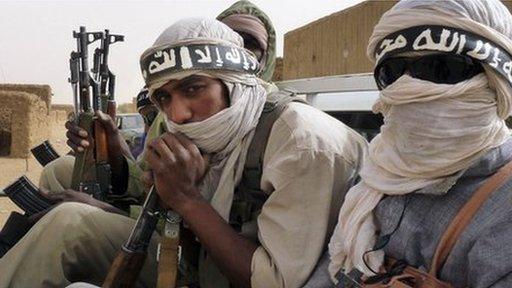
The Islamists have controlled northern Mali since last April
For anyone under the illusion that the early impact of French air strikes presages a rapid defeat for jihadist fighters in northern Mali, the latest news is a reminder of awkward realities.
The militant Islamists have seized control of the western town of Diabaly, just 150km (about 90 miles) from Segou and the country's economic heartland.
Officials in Paris were clearly not exaggerating when they said that without their intervention, the jihadist forces could have been in the capital, Bamako, within days.
And that would have been a strategic disaster for Mali above all, but also for West Africa as a whole, threatening the stability and democratic structures of the entire region.
It is understandable that in making the case for intervention to his domestic audience, President Francois Hollande has stressed the threat that would have been posed to Europe's security if Mali had been transformed into a new safe haven for radical Islamist groups.
But arguably the most worrying message - for Africa and the wider international community - would have flowed from allowing a once stable West African state to collapse entirely in the face of an assault by armed groups with an agenda of exporting revolutionary jihad.
That would have imperilled the long-term development and political security of countries from Senegal to Nigeria.
Even now, after the initial French and Malian success in halting the militant advance, many of the tough questions remain unanswered.
How will the unity and authority of the Malian state be restored? Are there underlying local grievances that need to be tackled? How will foreign troops or the Malian army cope if they have to take on the militants in desert combat during the hottest months of the year?
Peaceful handover
But these questions already faced the Malian government, France and the troop-contributing countries of West Africa, as they were developing plans for a more gradualist intervention later this year - September had been the target date for launching offensive action to retake control of the north.
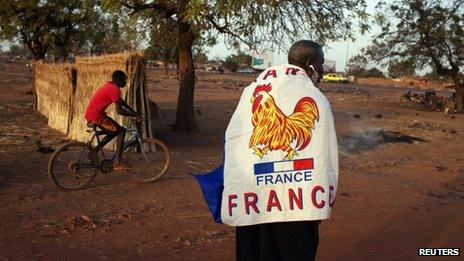
Many people in Mali's capital, Bamako, have welcomed French intervention
Restoring Mali's unity and stability was always going to be a complex, slow and costly process, beset with both political and military complications.
But now the plans that were being so carefully worked out, and endorsed by the UN in late December, will have to be re-phased at the very least.
The original plan had been for European Union (EU) experts to retrain the Malian army first and deploy West African allied troops gradually, while elections were held to re-establish a government with a democratic mandate to replace the current transitional regime established in the wake of the March 2012 coup.
Only after all this was a serious military offensive envisaged - and then only if the jihadist groups had failed to negotiate a peaceful handover back to government rule.
France expected to lead the EU training mission - and was briefing to that effect only last week. But it did not expect to lead front-line combat.
But debate over the fine details of the intervention plan was then dramatically overtaken by the decision of the jihadist groups occupying northern Mali to launch a major new offensive.
In March and April they had seized the key towns in Mali's north - Kidal, Timbuktu, Gao and Niafounke.
A few months later they occupied Douentza, in the absence of Malian army resistance.
But after that the military situation subsided into stalemate, with neither side showing aggressive intent.
Late last year Ansar Dine, a jihadist group constituted largely of local Tuareg, even joined the peace talks that the government had already started with the secular Tuareg rebels of the National Movement for the Liberation of Azawad (MNLA).
Ansar Dine later announced its withdrawal from talks, but this appeared to be no more than a negotiating tactic.
And when the militants last week advanced towards Konna, the northernmost outpost of government control, it seemed reasonable to speculate that the group's wily leader Iyad Ag Ghaly was merely stepping up the pressure in hope of securing extra concessions.
Rear bases
But the jihadists pressed forward, seizing Konna. It became clear that Ansar Dine forces were partnered by katibas (fighting units) from the other militant factions, al-Qaeda in the Islamic Maghreb (Aqim) and the Movement for Oneness and Jihad in West Africa (Mujao).
French intelligence identified about 200 vehicles and thousands of men, mounting a two-pronged offensive - from Douentza in the east and from Lere in the west, near Mauritania - aimed at seizing the strategic city of Mopti, gateway to the Malian south.
This was clearly a lot more than a negotiating tactic. There was a danger that the militants would have seized control of Bamako and the southern Malian heartland before any of the European military trainers or the West African intervention forces had arrived.
The air strikes and troop deployments of the past few days have brought a halt, and enabled France to hit the militant groups' rear bases in Gao and Timbuktu.
Some local people report that most of the radical fighters have abandoned these towns.
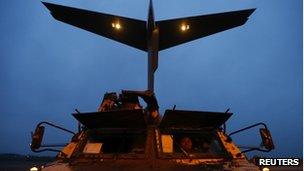
France pre-empted intervention by an African force
But although dramatic recent events have forced a re-phasing of the intervention strategy developed over recent months, many of the key ingredients will still be required: West African troops, the retraining of the Malian army, a credible political and development strategy for the north.
The West African forces are already arriving or about do to so, as governments in the region respond to the current emergency: Senegal, Niger, Burkina and Togo are all despatching troops. Nigeria is providing the command.
And after previous regional or UN operations in Liberia, Sierra Leone and Ivory Coast, these armies have had experience working together.
Many have also been involved in training exercises with the French and the Americans.
Meanwhile, the MNLA - the secular Malian Tuareg movement - has offered to join the offensive against the jihadists.
They will be able to contribute valuable familiarity with operations in the Sahara, their home environment.
But local Tuareg political, social and clan structures are complex. In the past, Malian governments have attempted to create a Tuareg militia to tackle Aqim in the Sahara but these arrangements have not always proved easy to manage.
So a critical priority will be to ensure that military progress for the government forces and their allies is rapidly followed by humanitarian assistance and development support.
This will be essential to assist the long-suffering civilian population in the north and start to rebuild local faith in the capacity of a state whose patchy delivery of basic services and administration had contributed to the weakening of security in the region over recent years.
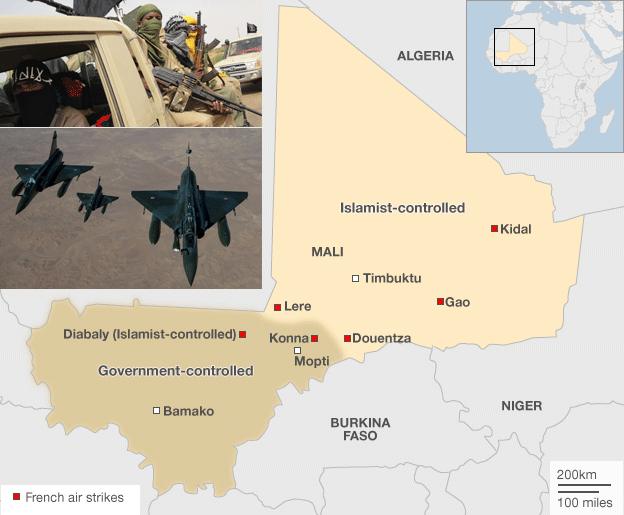
French forces have bombed rebel bases in Mali, where Islamist rebels have threatened to advance on the capital Bamako from their strongholds in the north. France said it had decided to act to stop the offensive, which could create "a terrorist state at the doorstep of France and Europe".
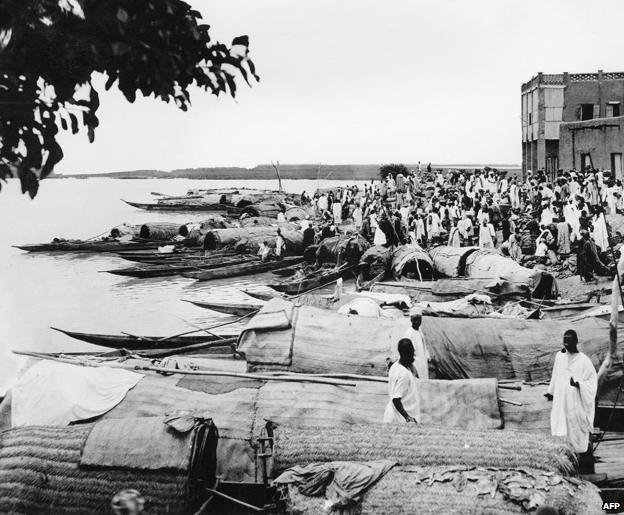
The landlocked area of West Africa was the core of ancient empires going back to the 4th Century. The French colonised Mali, then known as French Sudan, at the end of the 19th Century, while Islamic religious wars created theocratic states in the region.
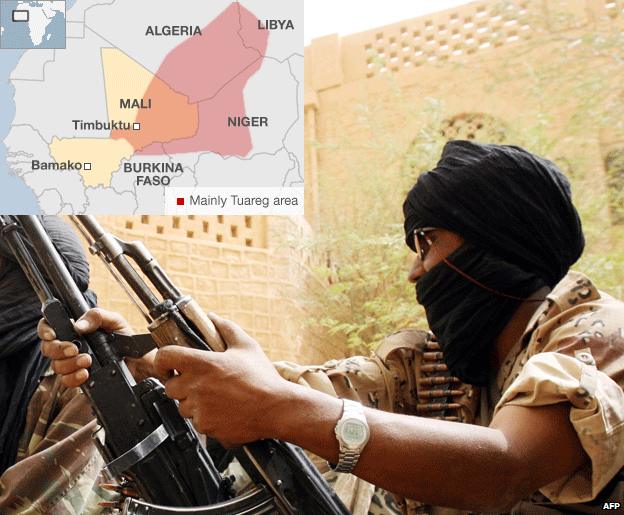
Mali gained independence in 1960 but endured droughts, rebellions and 23 years of military dictatorship until democratic elections in 1992. In the early 1990s, the nomadic Tuareg of the north began an insurgency over land and cultural rights.
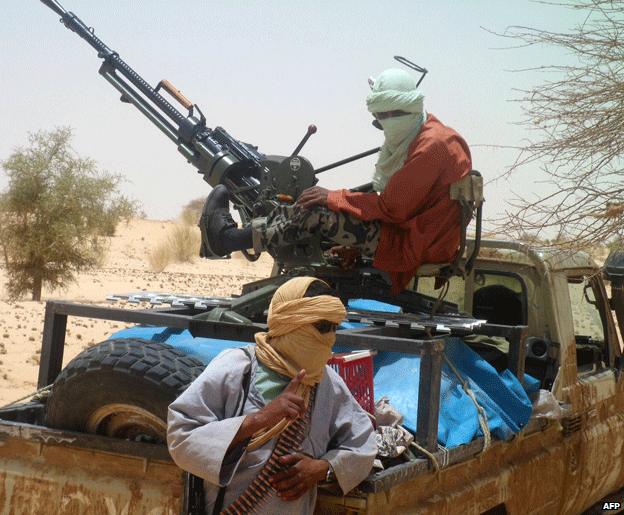
The insurgency gathered momentum in 2007, and was exacerbated by an influx of arms from the 2011 Libyan civil war. Tuareg nationalists, alongside Islamist groups with links to al-Qaeda, seized control of the north in 2012 after a military coup by soldiers frustrated by government efforts against the rebels.
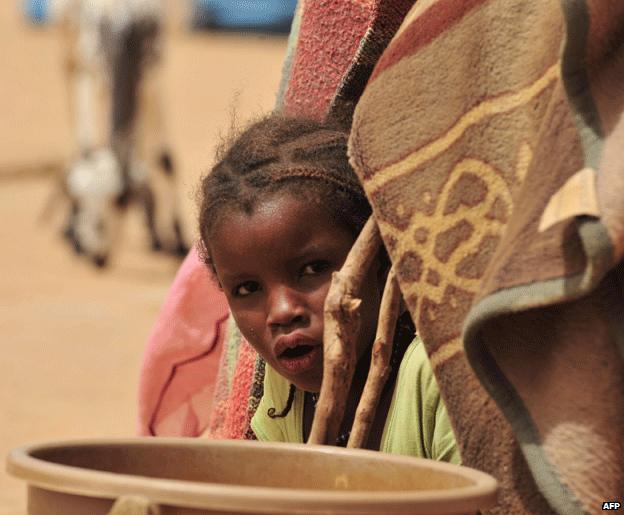
The fighting in the north and the establishment of a harsh form of Islamic law has forced thousands to flee their homes - some estimates say more than half the northern population has fled south or across borders into neighbouring countries.
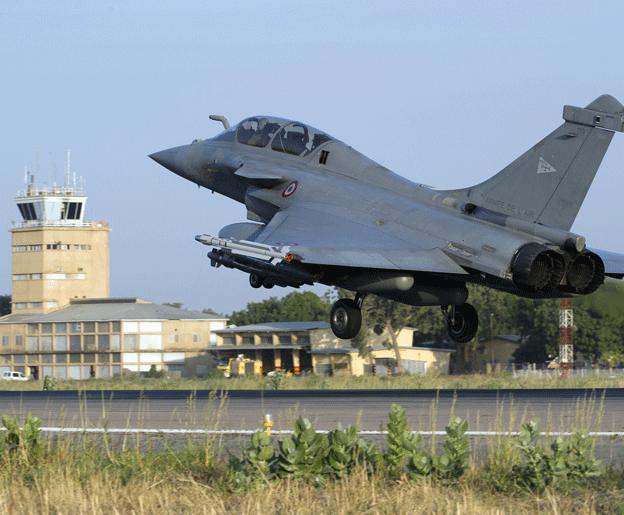
In January 2013, the Islamists captured the central city of Konna. France, responding to appeals for help from the Mali president, has sent about 550 troops to the Mopti and to Bamako, which is home to about 6,000 French nationals. French jets have also launched air strikes.